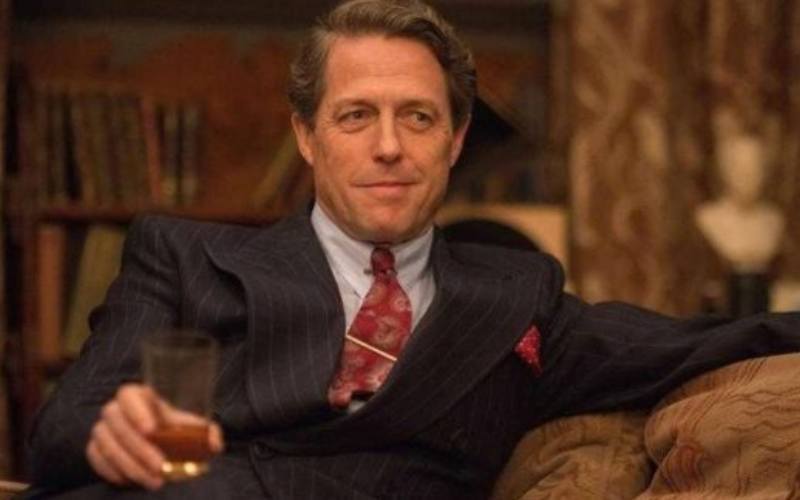Thumbnails is a roundup of brief excerpts to introduce you to articles from other websites that we found interesting and exciting. We provide links to the original sources for you to read in their entirety.—Chaz Ebert
1.
“Austin Pendleton and Ann Whitney on ‘Calumet’“: The two brilliant veterans of stage and screen chat with me at Indie Outlook about various highlights from their extraordinary careers, including Alex Thompson‘s wonderful short film, “Calumet,” which will screen in Chicago next week.
“[Indie Outlook:] ‘What I love about Stephen Cone [and Alex Thompson]’s work is it’s so much about the pauses between words. What is left unsaid is often most revealing.’ [Pendleton:] ‘That’s very well put, and not everyone who writes screenplays really writes like that. When there’s unstated personal stuff about a character, I find it productive to leave that to the actor and not probe them about it. Part of the potency of an actor’s performance is the privacy of it. If there is a part of a character that is mysterious, the actor is obviously going to their own understanding of things to define it. If an actor asks me questions when I’m directing, I’ll try to answer them, but I also say, ‘Look, if this doesn’t work for you, try something else.’ An actor can draw upon something that is actually from their own life, or they can imagine themselves in the situation of their character. If their imagination is evocative enough, it will work for them, but it’s definitely not the director’s job to interfere with any of that. All the director says is, ‘Here’s what I want you to do,’ and then sometimes if it keeps not working, you will say to the actor, ‘Whatever you are using for this from your own life or your own imagination doesn’t seem to be working for you. So let’s talk about the scene.’ Perhaps I will say something about the scene that will encourage you to go to something else in your life or your imagination. What a director should not do is try to be included in that privacy.’”
2.

“Keeping Up with Hugh Grant“: An excellent analysis of the celebrated actor’s versatility, courtesy of Martha P. Nochimson at Eye on Media.
“Ironically, ‘A Very English Scandal’ is, in many ways, ‘Florence Foster Jenkins’ seen through a glass darkly. There are small superficial similarities between the performative pretensions of Jeremy Thorpe and those of St. Claire. St. Claire calls Florence ‘bunny,’ and Thorpe uses the same pet name for Norman. Since the term of endearment was a key word in incriminating letters written by the historical Thorpe, it is impossible that this is anything but a nice coincidence. Thorpe’s linguistic mannerisms, however, may not be. They are similar to St. Claire’s, particularly his playful affectation of pronouncing ‘very, very’ as ‘veddy, veddy,’ and may well be Grant’s invention, and may well signal that he understood the ironic echoes of St. Claire in Thorpe. It is also ironic that Ben Whishaw plays both Paddington Bear to Grant’s predatory Phoenix Buchannan, and Norman Josiffe/Scott to the predatory Thorpe. Much more crucially, despite the serious under and over tones of both films, there is a comic spirit of absurdity that surges through both of them. The shrieks that Florence emits when she opens her mouth to sing, her manic passion for potato salad, and her impenetrable naiveté about her life in the face of all evidence is impossible to witness without laughing out loud at the same time that her plight touches us. Similarly, the comic timing of Thorpe’s homosexual seduction of Norman and his Monty Python-like effortless reversal into homicidal mode when he runs out of ways to silence his male lover leave us chuckling at the sheer calculation of the former and easy bloodlust of the latter.”
3.

“The Score-Only Version of ‘Star Wars: The Last Jedi’ is a Revelation“: According to the ever-reliable Jim Hemphill at The Talkhouse.
“This special feature is exactly what the description promises, an edition of ‘The Last Jedi’ stripped of all its dialogue and sound effects, accompanied only by John Williams’ score. Based on Johnson’s tweets about the release, he wanted to put out this version so that people could fully appreciate the breadth and depth of Williams’ music, which is indeed awe-inspiring – no mere pastiche of his previous work in the series but, like the film it supports, a stunningly inventive leap forward that honors the earlier films while moving the saga in surprising, gratifying directions. Yet the ‘silent’ edition of ‘The Last Jedi’ is far more than a tribute to Williams’ talent; by removing the dialogue and sound effects, Johnson has given his film a newfound purity in which all of its big ideas having to do with memory, legacy, regret and hope are amplified and made more intellectually and emotionally penetrating. He’s also transformed it into an entirely new movie that has different pleasures and more poignancy than the theatrical version while retaining most of what made that movie great. In this sense, the relationship the score-only version of ‘The Last Jedi’ has to the original is similar to the relationship between ‘The Last Jedi’ and the previous films in the franchise.”
4.

“Why Parkland survivors David and Lauren Hogg brought their activism to a book“: In conversation with Ebert Fellow Joseph Longo at Entertainment Weekly.
“[David:] ‘I think what made me want to talk about it was realizing the [bias] that me and all my friends have got — because we’re a bunch of essentially privileged white kids — from the media. This has been happening in communities of color, been happening in Native American and poor communities for centuries. Think about it. The first mass shooting was Wounded Knee, if you really want to think about it that way. This has been happening for centuries in these communities, and now just because it’s a bunch of rich white kids that are being shot, we have to care about it? I think that we have to take an intersectional approach, because not being intersectional is what’s gotten us to this point. We have to be intersectional to end it here. I hope that people understand in different communities — like in Chicago on the South Side, or in Ferguson, Missouri, or in Liberty City, or in inner-city D.C. — we can’t tell people how we’re going to help them if we haven’t lived through it. We have to listen and understand and empathize with them. That’s what I hope people learn from this book — how to feel empathy for other people and understand that the way to help others that haven’t experienced, for example, gun violence the way that you have or ever experienced gun violence. Ask the people that are affected how you can help them and what you can do. Don’t say you’re sorry. Say, ‘I’m fighting for you. I’m here, and I will be voting on this issue to end it, so that I’m not affected by this and nobody else is.’’”
5.

“The Problem with Seeking the Best for Your Kids“: As observed by Courtney M. Martin of On Being.
“So where does a parent like me, someone at an ethical crossroads in a time of racial and class upheaval, look for guidance? I don’t read a lot of parenting books. When I finally get my girls to sleep, all I want to do is read about childless women on daring adventures. But in a fit of desperation following one of my older daughter’s tantrums, I did order a stack of them. Sometimes I’ll pull one off the shelf and search for some insight. Almost without an exception, they are completely devoid of any discussions of the ethics of parenting, beyond the virtues of raising an empathic, nonviolent child (which does poor kids, socially segregated from your peaceful, compassionate kid a whole hell of a lot of good, it seems to me.) There isn’t even a stack of books to order and fail to read when it comes to my aspiration to parent in a way that actually challenges structural inequality. There are books on anti-racist parenting, most of which are painful to read. They feature endless lists of questions for self-reflection — ‘What are all my reference-group identities (race, ethnicity, national or regional origin of family ancestors, religion, gender, political affiliations, economic class, sexual orientation, ableness)? What does each mean to me? Which ones have most affected me at different points in my life?’ This barrage of broad and overwhelming questions appears to be a hallmark of books aimed at white people fumbling to think and talk about race. I understand the authors’ intent — of course we can’t challenge structural racism if we haven’t scraped the scales from our own eyes while looking at our own lives. But that scraping, it seems to me, is never going to be inspired or internalized by a bulleted list.”
Image of the Day

Jay Jones of The Los Angeles Times unearths the mysteries of Egypt, as portrayed in Cecil B. DeMille’s 1923 version of “The Ten Commandments,” in the dunes of the California Coast (including the sphinx head pictured above).
Video of the Day
With ailing legend Aretha Franklin at the forefront of our thoughts, let’s take a look back at her show-stopping performance at the Kennedy Center from three years ago, where she reduced President Obama to tears with her rendition of “(You Make Me Feel Like) A Natural Woman,” sung in honor of Carole King.












